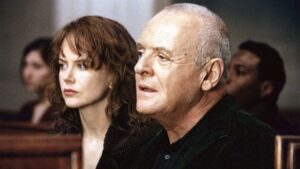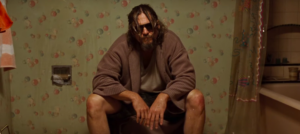When it comes to the Hollywood remake, far too many travesties have been foisted upon us over the years, either in the service of Mammon or in emulation of Icarus. Tim Burton’s Planet of the Apes (2001) was a tedious affair which could not be rescued by an imaginative ending that further twisted the original’s famous twist. Paul Verhoevan’s exhilarating satire Robocop (1987) was resurrected in 2014 but, like the character itself, was a hodgepodge that barely resembled the original. The remake of Child’s Play (2019) erased the most interesting feature of the story by turning Chucky, the doll possessed by the soul of a serial killer, into a malfunctioning robotic toy. It’s like recasting Jaws with a disgruntled salmon.
And so it is with some trepidation that I learn of an imminent remake of Clue (1985), the hilarious whodunnit written and directed by Yes Minister’s Jonathan Lynn. Like all the best cult films, this one was a commercial failure on its release and was rescued only by the loyal fanbase that developed thanks to the advent of VHS. Fans have been tantalised with the possibility of a remake for years now, but with Ryan Reynolds apparently confirmed to star, it looks like it’s soon to become a reality.
As an adaptation of the board game Cluedo, Clue really should have been awful. It succeeded because Lynn followed the lead of Murder by Death (1976), in which screenwriter Neil Simon observed the conventions of the murder-mystery genre while simultaneously sending them up. Where we might have expected a perfunctory script with two-dimensional recreations of the game’s characters, Clue offers a series of farcical set pieces interspersed with snappy dialogue from an ensemble cast whose quality would surely be impossible to replicate today. Are there any young actors currently working in Hollywood who could possibly rival the comedic dexterity of Madeline Kahn, Eileen Brennan, Christopher Lloyd or Tim Curry?
And yet, I wonder whether my fears are rooted in pure nostalgia, a sentimental need to protect the memories of my childhood from desecration. As a boy, I would marvel at Tim Curry’s shapeshifting virtuosity. I remember my utter astonishment on learning that the villain Rooster from Annie, the killer clown from the mini-series It, and the impossibly muscular 10-foot-tall demon from Legend were all played by the same actor.
Clue was a particular favourite. Curry’s performance is the beating heart of this improbable farce, in which his capacity for razor-sharp comic timing and physical buffoonery is showcased to perfection. Rewatching the movies of our youth always carries a degree of risk; more often than not, we are confronted with the realisation that our favourites were utter dross, only bearable when seen through callow eyes. But revisiting Clue as an adult has been a pleasure. It’s completely daft, of course, but it has no pretensions to high art and is executed with clockwork precision, building gradually to its three frenzied climaxes.
And so it seems unfeasible that another actor could improve upon Curry’s star turn as the butler Wadsworth. We have already seen the experiment carried out in the case of one of Curry’s other best-known roles: the transvestite alien Dr Frank N. Furter in The Rocky Horror Picture Show. Laverne Cox was impressive in the 2016 television version, but one could not quite shake the feeling that there was an imposter in those fishnet tights. Richard O’Brien, the show’s creator, once remarked to me that Curry’s interpretation of Frank N. Furter was “definitive”. So why bother attempting to improve on the unimprovable?
Creatives in Hollywood are often accused of laziness in rehashing tried and tested formulae. Yet the attempt to recreate an already popular film takes a certain chutzpah that I can’t help but admire. Has there ever been a remake that has satisfied fans in every respect, or that hasn’t been damned from the moment of its inception? The task is Sisyphean. The filmmaker is trying to win over an audience that is bound to be hostile.
One solution is the “requel”, a combination of a sequel and a reboot that follows on from previous storylines but introduces new characters to supplement the original cast. This technique is engineered, one might say cynically, to satiate the nostalgic appetites of older fans while cultivating new ones. Jurassic World: Dominion (2022) allowed moviegoers the opportunity to be reacquainted with the key figures from 1993’s Jurassic Park (played by Sam Neill, Laura Dern and Jeff Goldblum), alongside some new younger cast members to take care of the more physically demanding action sequences.
But requels are invariably a mess. The Han Solo of The Force Awakens (2015) feels like a dioramic approximation of his former self, and the Luke Skywalker of The Last Jedi (2017) is a veritable changeling. When Prince Akeem returned to our screens in 2021 for a requel of Coming to America (1988), the traits that made him so compelling had been mercilessly sanitised. The effect of all such character revivals is akin to our frustration at the Falstaff of The Merry Wives of Windsor, a strange doppelganger with none of the flair or caustic genius of the fat knight of the Henry IV plays.
But perhaps we ought to resist our natural cynicism. Yes, remakes are about milking cash cows — usually ageing ones with desiccated udders — but there’s nothing new in the reworking of popular stories. With the exception of Love’s Labour’s Lost, A Midsummer Night’s Dream and The Tempest, Shakespeare always borrowed his major plotlines. As You Like It was written barely a decade after the publication of Thomas Lodge’s Rosalynde, the text upon which it is based.
Of course we forgive Shakespeare because he always surpasses his sources, but there is an ideal here that writers might wish to emulate. Poets of the Elizabethan era were informed by the imitation theory of the Roman rhetorician Quintilian. That is to say, great art could be produced through a combination of both imitation and invention. We might apply this concept to cover versions of pop songs. These can often amount to little more than karaoke but, in some cases, can surprise us with the audacity of their reinterpretation.
The same can be said of movie remakes. Those that succeed only do so because they are able to blend imitation with invention. One thinks of John Sturges’s transposition of Akira Kurosawa’s Seven Samurai (1954) to the American wild west in The Magnificent Seven (1960). Then there is Dirty Rotten Scoundrels (1988), Franz Oz’s remake of 1964’s Bedtime Story. Steve Martin and Michael Caine are able to generate more explosive comedic chemistry than David Niven and Marlon Brando in the original, and the added feminist twist at the end is masterfully done.
Gus Van Sant’s 1998 version of Alfred Hitchcock’s Psycho (1960) was mauled by critics who resented the very concept of a shot-for-shot remake, one that copied the camera tracking and editing of the original. To put this criticism in the terms of Quintilian’s Institutio Oratoria, our auteur had committed the sin of pigritia (indolence) by failing to invent in the act of imitation. This criticism was seemingly universal, but it was based on a false premise. There are significant differences in Van Sant’s version — which I will not spoil here — and these are all the more potent due to their infrequency. To my mind, the remake is a success, precisely because it is able to modify our perspective of the original in surprising and sinister ways.
So perhaps we ought to embrace the inevitability of the remake. The retelling of existing stories is the oldest story of them all, and some of our greatest artists have produced their best work by drawing on the collective imaginations of their predecessors. The miserable quality of current Hollywood remakes isn’t so much proof that the concept is flawed, but rather that the leading practitioners of the cinema seem to lack the ingenuity to reignite our interest.
As such, I am keeping an open mind when it comes to the remake of Clue. Madeline Kahn is, of course, irreplaceable, and whoever assumes the role of Mrs White may as well steel themselves for the unflattering comparisons. Yet if the filmmakers can avoid pandering to modish identity politics, and find some inspiration in that febrile no-man’s- land between the expectations of a devoted fanbase and the need to innovate, it is possible that our inevitable disappointment can be assuaged.
Disclaimer
Some of the posts we share are controversial and we do not necessarily agree with them in the whole extend. Sometimes we agree with the content or part of it but we do not agree with the narration or language. Nevertheless we find them somehow interesting, valuable and/or informative or we share them, because we strongly believe in freedom of speech, free press and journalism. We strongly encourage you to have a critical approach to all the content, do your own research and analysis to build your own opinion.
We would be glad to have your feedback.
Source: UnHerd Read the original article here: https://unherd.com/



